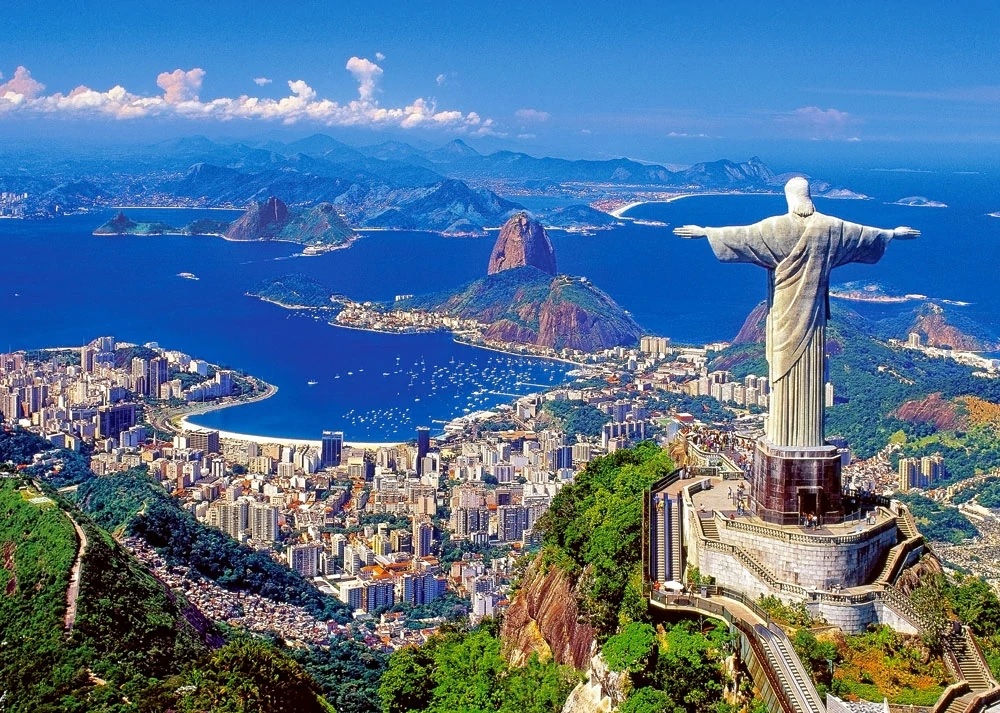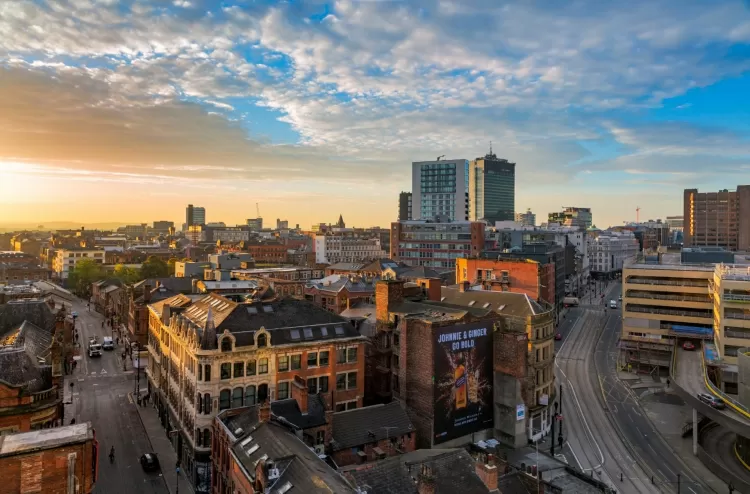By Felipe Van Deursen
Can you qualify how friendly and receptive a city is to foreigners?
Measuring the happiness of these people in a territory that is not their own and taking into account such different issues as safety, communication in English, and treatment of minorities?
And, in the end, put these subjective assessments together to form a ranking?

In the list that we will see below, Rio de Janeiro got a zero in one of the topics and ended up at the bottom of the list of 53 evaluated cities.
Language learning platform Preply, founded in the United States and with offices in 30 countries, created a “community spirit index.
Based on six measures, a list was released in April with the most (and the least) receptive cities worldwide.
HOW DID THE EVALUATION WORK?
The six items measured are more or less subjective, but the platform tried to give them some objectivity. They are:
- Return visitor rate: the percentage of people who return to a city, indicating a positive impression of the place.
- Friendly Accommodations: the percentage of ratings of hotels and other accommodations that use the term “friendly” in reviews and comments.
- Community Respect: the city’s safety rating, both for residents and visitors.
- Acceptance of diversity: index of equality for the LBTQIA+ population.
- Happiness: happiness index according to the city’s inhabitants.
- Ease of Communication: proficiency of the local population in English.
THE CHAMPIONS

The ranking evaluated 53 cities on all continents.
Not surprisingly, the top places were from wealthy countries with English as their native language (given the last evaluation item).
Among the top ten, the exceptions are Montreal, which is in the French-speaking portion of Canada, and Copenhagen, Denmark.
- Toronto (Canada)
- Sydney (Australia)
- Edinburgh (United Kingdom)
- Manchester (UK)
- New York (USA)
- Montreal (Canada)
- Melbourne (Australia)
- San Francisco (US)
- Dublin (Ireland)
- Copenhagen (Denmark)
“With a happiness score of 7.03 (out of 10) and a very high LGBTQI+ equality score of 90 (out of 100), Toronto is an inclusive and welcoming place for all,” the platform explained on its website.
Toronto has a 15% return visitor rate, which is considered high. Sydney has a slightly higher rate, at 16%.
The city that until last month was the largest in Australia (Melbourne overtook it) stands out in safety (65.87 out of 100) and LGBTQI+ equality (84 out of 100).

England’s Manchester was the champion in the team-friendly hotel accommodations rating category.
Tel Aviv in Israel had the highest score for LGBTQI+ equality, with 73.03.
Copenhagen, meanwhile, is the happiest, with a score of 7.53.
THE ‘DOWNGRADED’ ONES
With low English proficiency rates and negative hotel staff ratings, cities in developing and emerging countries dominated the bottom of the list.
The exceptions here are Athens in Greece and Lyon in France.
44. Lyon (France)
45. Medellin (Colombia)
46. Athens (Greece)
47. (Qatar)
48. Delhi (India)
49. Rio de Janeiro (Brazil)
50. Mumbai (India)
51. Kuala Lumpur (Malaysia)
52. Marrakesh (Morocco)
53. Accra (Ghana)
RIO GOT A ZERO IN ONE OF THE CATEGORIES
Rio de Janeiro stood out negatively in the “friendly accommodation” item: zero.
Only Lyon managed to go that low.
The Rio de Janeiro capital also had the worst rating in safety (22.36 out of 100), well below the second to last place in the category, Kuala Lumpur (37.37).
The ranking was criticized on social networks for its metrics.
One Twitter user posted: “It should be called ’25 countries seen as friendly by rich, white, Anglo-Saxon travelers’.”
Another commented that the diversity item looks only at the LGBTQIA+ issue, ignoring racial violence.
In addition, Preply does not explain how it evaluated topics such as safety and happiness.

The rate of return is also controversial because people who travel for work often, or almost always, do not choose where to go or where to return.
Finally, it is clear that because Preply is a language platform, it will give great, perhaps even too much, weight to English fluency in measuring a city’s friendliness.
LIST CAUSED CONTROVERSY
The list also draws attention to the importance given to cars in cities, something that has been debated for decades by urban planners as something central to assessing the quality of life in a place. In 1961, Jane Jacobs dealt with the subject in Death and Life of Great Cities.
In the book, the author shows that the dramatic increase in automobile traffic and the ideology of urban planning that segments city uses and prioritizes independent and autonomous buildings would kill urban space and create empty and lifeless cities. Something essential to analyze how friendly a place is.
So, yes, the ranking ends up being a list of friendly cities for the English-speaking traveler.
Preferably the English of rich countries because it is ironic that among the countries with the worst ratings are two former British colonies, Ghana and India, where English is one of the official languages.
IS THERE FRIENDSHIP IN SP?
São Paulo stood out in another metric in the ranking.
Of all the cities evaluated, none had more internet searches for “how to make friends” than São Paulo.
New York and Paris came right behind in the query.
According to the platform, this would indicate places with a greater demand for human connections.
“Whether you’re supersociable or a shy introvert, these cities are the place to be if you want to expand your social circles and meet new people,” it explains on the site.
ANOTHER RIO?
If the internet has popularized lists and rankings, with some scientific and statistical criteria or just for guesswork, fun, or cliché hunting, it is clear that there are other rankings of this kind. One of them, recently released, paints Rio in much friendlier colors than Preply.
The prestigious tourism magazine “Condé Nast Traveler,” in its latest ranking of the world’s friendliest cities, gave the Brazilian city second place based on readers’ evaluations.
“It is easy getting involved in the relaxed atmosphere.”
“Detailed itineraries are commonly abandoned once you start wandering the busy streets,” the magazine described.
News Brazil, English news Brazil, Rio de Janeiro

